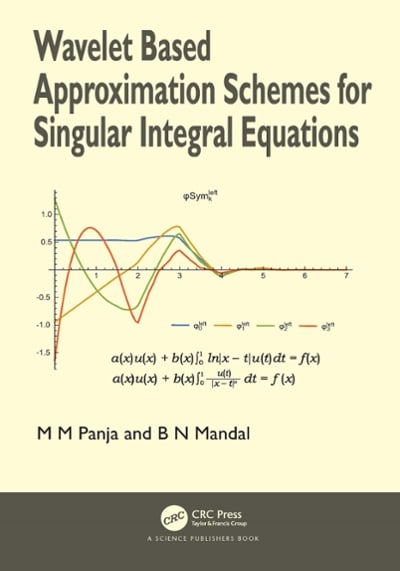Question
Consider a set ot n machines and a solitary fix office to support these machines. Assume that at the point when machine I, 1, n,
Consider a set ot n machines and a solitary fix office to support these machines. Assume that
at the point when machine I, 1,
n, tails it requires a dramatically disseminated measure of work vvith rate
Vito fix it. The maintenance office isolates its endeavors similarly among all followed machines in the sens.e
that at whatever point there are k bombed machines every one gets work at a pace of 11k per unit time. On the off chance that
there are an aggregate of r working machines, including machine I, at that point I tails at a prompt rate
(a) Define a fitting state space in order to have the option to examine the first framework as a
nonstop time Markov chain.
(b) Give the quick progress rates (that is, give the q).
(c) Write the time reversibility conditions.
(d) Find the restricting probabilities and snow that the cycle is time reversible.
Q54
('2')
curves
Think about a chart with hubs 1, 2,
, n and the
n. (See
Area 3.6.2 for proper definitions.) Suppose that a paicle moves along this chart as
follows: Events happen along the circular segments (I, D as per autonomous Poisson measures with rates
An occasion along bend (I, D makes that curve become energized. It the molecule is at hub iat the
second that (j, J) gets energized, it promptly moves to hub j, j, j-1,
, n. Let PJ
mean the extent oftime that the molecule is at hub j. Show that
1
n
Clue: use time reversibility.
Q55
A sum of N clients move about among r workers in the accompanying way. At the point when a client is
served by worker he at that point goes overto worker j, I, with likelihood 1/(r 1). Ifthe worker he
goes to is free, at that point the client enters administration; other"se he joins the line. The assistance
times are altogether autonomous, with the assistance times at worker I being dramatic with rate g, I - 1,
, r. Leave the state whenever alone the vector (171, nr), where njis the quantity of clients
by and by at worker I, I .
(a) Argue that lfX(t) is the state at time t, at that point {X t > O) is a constant time Markov
chain.
(b) Give the microscopic paces of this chain.
(c) Show that this chain is time reversible, and track down the restricting probabilities.
Q56
Four laborers share an office that contains four phones. Whenever, every laborer is all things considered
"working" or "on the telephone." Each '*vorking" time of specialist I goes on for a dramatically
circulated time with rate A1, and each "on the telephone" time frame goes on for a dramatically disseminated
time with rate 1, 2, 3, 4.
(a) What extent of time are generally laborers "working"?
Let equivalent 1 if specialist I is working at time t, and let it be 0 in any case. Let
X'(t) (NJ X2(t), X3(t), X4(t)).
(b) Argue that {X(t), t > 0} is a constant time Markov chain and give its tiny rates.
(c) Is {X(t)} time reversible? Why or why not?
Assume now that one ot the telephones has separated. Assume that a laborer who is going to
utilize a telephone however discovers them all being utilized starts another "working" period.
(d) What extent of time are on the whole laborers "working"?
Step by Step Solution
There are 3 Steps involved in it
Step: 1

Get Instant Access to Expert-Tailored Solutions
See step-by-step solutions with expert insights and AI powered tools for academic success
Step: 2

Step: 3

Ace Your Homework with AI
Get the answers you need in no time with our AI-driven, step-by-step assistance
Get Started


